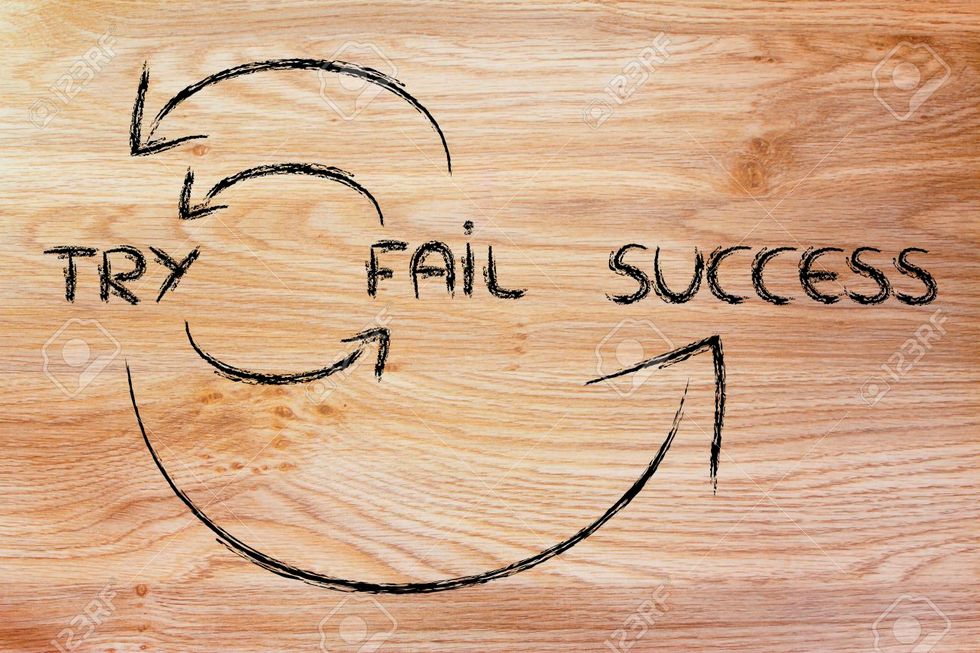For college students around the world, come winter and spring time, applying to internships is like applying to college all over again. Similar to college applications, many internships call for submissions of resumes, cover letters, answers to job-specific questions, and sometimes even letters of recommendation; and these cannot be drafted as one-size-fits-all.
If you're reading this, there's a good chance you've been through this process and you get it. You diligently worked through dozens of websites and job portal searches to find potential internships.
To make yourself stand out and give yourself a realistic chance at landing those internships, assuming your application got read in the first place, you had to fine tune your resume to better reflect your qualifications for the job.
You had to write fresh cover letters tailored to your interest in the company and why you were so passionate about working there.
For some you might have even had to submit special materials like a portfolio or website to even be considered.
And you did that for every job, while still working hard in school, while still bearing all of your responsibilities, while still doing everything else.
Landing your dream internship can be just like getting into your dream college. It opens a gateway to your ideal career path, and is a huge reassurance that you have what it takes to succeed in your field. It deserves a huge pat on the back and a sigh of relief.
Now for those of us, myself included, who didn't land their dream internship, the rejection can be nothing less than soul-crushing.
You spent weeks if not months picturing yourself going to work everyday at a leading company or organization in your field not only that has the name, but also speaks to your personal values and career vision.
You did endless research on the company, its philosophy, its leadership, and its hiring process.
Then you spent hours carefully preparing your application, checking your cover letter for typos, making sure your every word in your resume presents you in the best light for the position, and with a heavy deep breath, you hit "submit' on your application; and then you waited.
During the wait you searched constantly how long it took others to hear back, how many interviews they went through, and how they heard they of their acceptance. Y
ou waited patiently, all the while simultaneously growing your excitement, and perhaps even a little anxiety as doubt crept in whether you were really the one.
And all throughout, your passion and maybe even infatuation with the company only increased further.
For some of us, this shrine of hope came crumbling down with one curt rejection email, and for others of us it slow burned down as weeks passed with no response as it gradually dawned upon us that the dream would not come true.
There are some things that are out of our control.
In either case, the rejection can be one of the personally harshest things that a college student must endure. Everything you've worked towards in your college career and maybe even before that, and all the boundless excitement and anticipation you had that this internship would be the next big step you would take to launch your career were washed away. Before I address how to overcome this immense disappointment that seems eternal, here are a few reasons why the outcome may not have been completely in your control despite your best efforts.
Your application may not even have been read.
Top companies and firms in any field receive hundreds upon thousands of applications for their coveted internships, many of which are from well-qualified, passionate students eager to use the internship as a valuable learning experience making meaningful contributions to a prominent company and as a stepping stone towards their ideal career paths. Logically, HR teams often have no way of reading every single one of their applications, much less examining them in detail against the qualifications of the position. Especially in the modern age, automated HR tools allow for filtering of application pools for key words or qualities, which are sometimes not even listen under the job postings. Unfair as it may seem, this could've easily happen to you, and it's important to acknowledge and accept that such circumstances render the outcomes reliant upon external and sometimes arbitrary factors completely out your hands. The best we can hope for in this case is to try again even harder the next semester or next year and hope that the universe is on our side.
The internship wasn't right for you.
This is one of toughest pills to swallow, and it can render us feeling helpless and unworthy. But it's important to realize that you might develop a certain vision and preconception of a particular internship and the work there throughout all your excitement, which might not always align with the actuality of the position and what the experience will truly give you once you're there. A good fit goes two ways, and some rejections might mean that the company was simply looking for something else, not necessarily someone better than what you had to offer. It's unbelievably difficult to accept this, and I admit I am personally still struggling with this, but know that if the position wasn't a good match, it likely saved you from a summer of 40 hours of disappointment a week, Monday through Friday, of working at a job that wasn't right for you.
With that being said, it's also important not to speculate and kill yourself trying to figure out why you weren't the one.
A rejection is one outcome of a binary decision that could have any number or combination of factors that led to it, and it's impossible to fathom them in their entirety. The rejection may have been inevitable because of circumstances out of your hands, or maybe you weren't the best qualified candidate just yet. But it is of paramount importance not to overly dwell on why you didn't get the job you desired so much for so long, and instead spend that time addressing your disappointment and moving forward with the same enthusiasm that drove you to apply.
A common piece of advice I've heard my whole life from parents and mentors alike that I believe is the single most deplorable and utterly useless thing one can hear during a period of rejection or sadness is that "it's not worth crying over", or to "get over it and move on". These tidbits of, frankly, nonsense that are passed off as constructive advice do not help us one bit in our grief. It is perfectly okay and understandable to feel upset over something that is so personal and important.
What you must do now is accept the outcome, address your disappointment, and reassure yourself that you are on the right path and you will achieve those goals and ambitions that you set out for yourself, just not exactly in the way you envisioned before the rejection hit.
This isn't the end of your journey, and it's anything but an indication that you will not or cannot succeed.
For internship applications, and for that matter, in many other facets and endeavors of life, one rejection at one internship, or many internships, doesn't mean we need to change our career goals or rethink what we're doing.
A rejection simply means that life will not progress in exactly the way we originally intended it to at that exact moment. Nothing less, nothing more.
The prestigious award you saw yourself holding in 20 years? Still there waiting for you to go get it.
The dream job you wanted to be working by the time you were 25? Still completely doable.
The company you wanted to start after gaining invaluable professional experience? Still in your head and idea hasn't disappeared anywhere. When we are not able or denied the opportunity to something we desire, it is the next navigational instruction from the universe to keep driving towards our goals at 100 miles per hour, just in a slightly different path than we originally thought we would use to reach there.
There are so many things you can do to keep working towards your career goals outside of that one internship.
A rejection does not mean you are not cut out for your field, or you don't have what it takes. It means that at one very specific time and place the circumstances in and out of your control did not align for you to proceed down one path. All the others are still open, and the destination is still in sight if you keep it there.
Keep applying.
If it isn't too late and there are still internships that are even of remote interest to you accepting applications, then keep applying to them! Internships that even align slightly with the career you want to create for yourself can offer excellent experience and even expose you to other fields of work in which you might find hidden interests.
John Cleese once said that putting ourselves in a creative headspace means doing things we wouldn't normally do and taking risks. At an internship that might be slightly out of your interests or personal values can widen your horizon and expose you to parts of your industry that you wouldn't have known about otherwise.
Finding an internship can require leveraging the entirety of resources and connections available to you, so you must be resourceful. Think hard about where opportunities may lay and do research. Chances are you'll be surprised by what you'll find. And if the internship turns out to be horrible, you have all the more reason to work harder to get a better one next year (with another internship adorning your resume).
If applications are closed and you can't find anything, don't worry - there are plenty of other ways to productively spend your time while preparing to apply again.
Do a project.
A summer without an internship can be reframed as a summer of opportunity to pursue a career-related or personal project. Channel all that enthusiasm that the internship would be the stepping stone towards your dream career into a personal project that might also be a good step forward - even if its just a fun hobby, do it for you, not for your career.
Want to become a computer scientist? Develop a cool application. Want to become a creative? Make a kickass film or build an insanely awesome game. Like cooking? Try and perfect some Gordon Ramsay recipes, or better yet, your own.
Find another job.
Whether it be doing freelance web development or flipping burgers at your local McDonalds, any job, no matter how menial, teaches a few things.
It teaches responsibility. Any job requires handling responsibilities and ensuring that things get done. This is required for any job one could ever do, and it can even be beneficial to learn this in a low-stakes environment where your mistakes will not follow you.
It teaches discipline. Many high-profile internships and jobs require you to report to work at the same time everyday and sometimes work long hours. A menial job can teach you that and leave you prepared to be the first one to arrive at the office and the last to leave once you land that dream job.
And along with these lessons, it is sure to leave you with a bit of change that can always come in handy.
Try again next year.
After you've addressed your disappointment, and found another productive way to spend your summer, rest assured that you can apply again to your dream internship next summer or maybe even in the fall, with a great deal of time to work on your resume and give yourself an even better shot at landing it. Just remember that your goals will remain your goals, and you are still entirely capable of reaching them if in a slightly different way than you originally imagined you would.
































